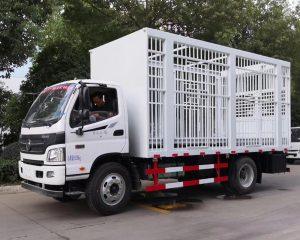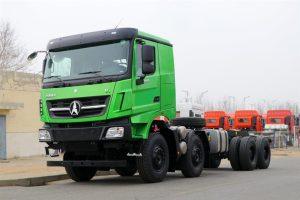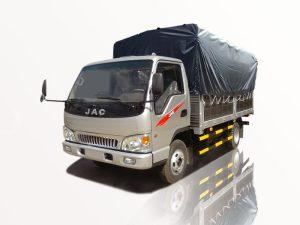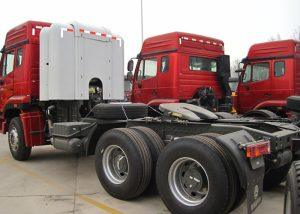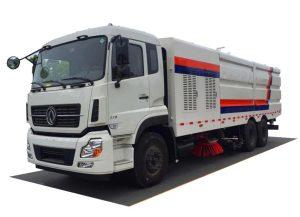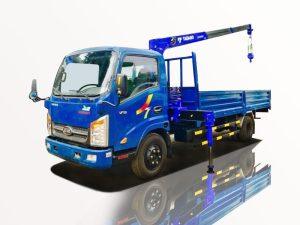Monday to Saturday - 8:00 -17:30
Understanding Garbage Compactor Trailers: A Comprehensive Guide
Garbage compactor trailers are essential tools for waste management, particularly for businesses, events, and construction sites. In this article, we will explore what garbage compactor trailers are, their benefits, how they work, and provide practical advice on selecting and using one effectively.
What is a Garbage Compactor Trailer?
A garbage compactor trailer is a specialized type of trailer designed to reduce the volume of waste and garbage. It operates using a hydraulic mechanism to compress waste materials into dense bundles, allowing for more efficient transport and disposal. Typically used in commercial settings, these trailers can handle various waste types, including construction debris, household waste, and recyclable materials.
Key Features of Garbage Compactor Trailers
- Hydraulic Compaction System: The heart of a garbage compactor trailer is its hydraulic system that compresses waste.
- Durable Construction: Built from robust materials to withstand harsh environmental conditions.
- Large Capacity: Designed to hold substantial amounts of waste, reducing the frequency of disposal.
- Mobility: Can be towed to various locations, making them ideal for temporary jobsites.
Benefits of Using a Garbage Compactor Trailer
Companies and individuals can benefit significantly from garbage compactor trailers in several ways:
1. Increased Waste Efficiency
By compacting waste, these trailers allow more trash to fit into a single load, which reduces the number of trips needed to dispose of waste. This not only saves time but also lowers transportation costs.
2. Cost Savings
Companies can save money on disposal fees as they can maximize the volume of waste handled per trip. The reduction in labor costs and fuel expenses adds to overall savings.
3. Environmentally Friendly
More efficient waste disposal means fewer trips to landfills, which reduces greenhouse gas emissions. Additionally, compacting waste makes it easier to recycle materials, contributing to environmental sustainability.
4. Improved Site Safety
Keeping waste compacted and in one place minimizes hazards associated with loose debris, thus improving safety for workers and anyone on-site.
5. Versatility
Garbage compactor trailers can be used for various applications, including residential clean-outs, commercial construction sites, and events requiring substantial waste management solutions.
How Does a Garbage Compactor Trailer Work?
Understanding how a garbage compactor trailer operates can help you utilize it effectively. The process can be summarized in several steps:
1. Loading the Trailer
Waste is loaded into the trailer either manually or through a chute. Most trailers are designed to facilitate easy loading, with low decks for easy access.
2. Compaction Process
Once the garbage is loaded, the operator activates the hydraulic system. This system employs a compaction plate that moves down under pressure, compressing the contents within the trailer into a smaller volume.
3. Transporting the Waste
After compaction is complete, the trailer can be towed to the disposal site. The denser load allows for fewer trips and optimized disposal.
4. Disposal
At the disposal site, the compacted waste is removed from the trailer using a hydraulic system or manually, depending on the trailer type.
Choosing the Right Garbage Compactor Trailer
When selecting a garbage compactor trailer, consider the following factors:
1. Size and Capacity
Assess the volume of waste you regularly handle. Garbage compactor trailers come in various sizes, ranging from smaller units for residential use to large trailers designed for industrial applications.
2. Weight Limit
Determine the maximum weight of the materials you will be compacting. Ensure the trailer can accommodate these weights without damaging the trailer structure.
3. Type of Waste
Consider the type of waste you will be transporting. Some trailers are better suited for construction debris, while others are optimized for municipal waste or recycling.
4. Hydraulic System Quality
The quality of the hydraulic system is crucial. Look for trailers with reliable components as failure can cause operational delays and safety issues.
5. Towing Compatibility
Check your vehicle’s towing capacity. Ensure it can safely tow the garbage compactor trailer you choose. Compatibility with hitch types is also important.
Maintenance Tips for Garbage Compactor Trailers
Proper maintenance can extend the life of your garbage compactor trailer:
1. Regular Inspections
Conduct routine inspections for any signs of wear and tear, especially on hydraulic components and tires. Early detection can prevent larger issues.
2. Lubricate Moving Parts
Ensure that all moving parts, particularly in the hydraulic system, are properly lubricated to avoid operational failure and ensure smooth functioning.
3. Clean After Use
Cleaning the trailer after each use helps prevent build-up and corrosion, enhancing durability. Pay special attention to the compaction area.
4. Tire Maintenance
Check tire pressure regularly and inspect tires for any damage. Proper tire maintenance ensures safe transportation.
Practical Examples of Garbage Compactor Trailers in Use
| Scenario | Description | Benefits |
|---|---|---|
| Construction Sites | Managing construction debris effectively with the compactor. | Fewer trips to disposal sites and reducing clutter. |
| Residential Clean-outs | Using compactors for post-renovation clean-up. | Streamlined process for getting rid of waste. |
| Event Waste Management | Managing waste from large events or festivals. | Easier collection and disposal of waste at large gatherings. |
| Recycling Stations | Compact recyclable materials for easier transport. | Enhanced recycling efforts through efficient collection. |
Common Mistakes to Avoid When Using a Garbage Compactor Trailer
1. Overloading the Trailer
Exceeding the weight limit can damage the trailer and create safety hazards. Always adhere to the manufacturer’s specifications.
2. Neglecting Maintenance
Ignoring regular checks can lead to bigger problems later on. Establish a maintenance schedule for inspections and repairs.
3. Improper Loading Techniques
Ensure weight is distributed evenly to avoid tipping during transport. Follow proper loading procedures for safety.
4. Failing to Follow Local Regulations
Be aware of and comply with local waste disposal regulations. Failure to do so can result in fines and other legal issues.
Frequently Asked Questions (FAQs)
1. How much does a garbage compactor trailer cost?
Prices can vary widely based on size and features, usually ranging from $5,000 to $30,000 or more. It’s advisable to compare options from multiple manufacturers.
2. Can I rent a garbage compactor trailer?
Yes, many companies offer rental services for garbage compactor trailers, which can be a cost-effective option for short-term projects or events.
3. What types of waste can be compacted?
Most garbage compactor trailers can handle construction debris, household waste, and recyclable materials. However, hazardous waste typically requires special handling.
4. How often should I maintain the trailer?
Regular inspections should be completed monthly, with more thorough maintenance conducted every 6 to 12 months, depending on usage.
5. Can compactor trailers be used for recycling?
Yes, garbage compactor trailers are effective for recycling, allowing users to compact recyclables for efficient transportation to recycling facilities.
6. How do I know if my vehicle can tow a compactor trailer?
Check your vehicle’s manual for its towing capacity. Ensure it meets or exceeds the weight of the loaded compactor trailer.


